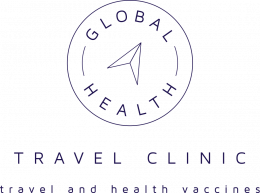Cases of measles continue to be reported worldwide, with recent outbreaks reported in Africa, the Americas, Asia, Europe and the Middle East.
Measles epidemics in regions visited by UK travellers can directly contribute to an increase in measles cases in the UK.
Measles is a highly infectious illness spread by airborne/droplet transmission. Symptoms include fever, runny nose, conjunctivitis and cough. A rash then usually develops, starting at the head, then spreading to the trunk and limbs, over three to four days. Individuals can infect others from the beginning of their first symptoms to four days after the rash appears and the incubation period (the time between being infected and showing the first symptoms) is about ten days. Serious complications can occur. Risk of death from measles is age-related: high in children under one year of age, lower in children aged one to nine years, rising again in teenagers and adults.
In the UK, the death rate is approximately one in 5,000 cases.
Advice for travellers
As part of your travel preparation, make sure you are up-to-date with all currently recommended UK vaccines including measles, mumps and rubella (MMR) vaccine. Two doses of MMR are needed for a person to be considered fully protected. MMR can be given from six months of age before travel to a risk country and/or where an outbreak is occurring.
If you have not had measles (the illness) or if you have not had two doses of MMR vaccine you may be at risk. This is especially a concern for travellers staying with friends or family, mixing with the local population or going to mass gatherings like festivals, sports events or pilgrimages. It is never too late to have the vaccine.

